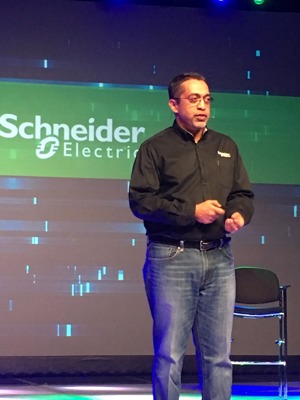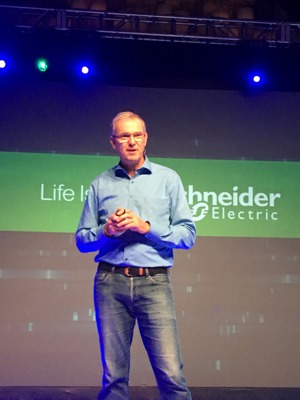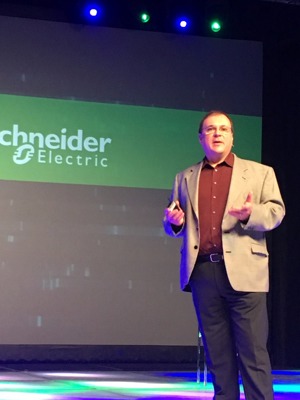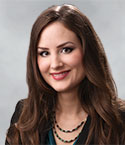Schneider Electric Innovation Summit '17: The transformative power of digitalization
By Adrienne Blume, Executive Editor
SAN ANTONIO—At the Day 1 kickoff of Schneider Electric's Innovation Summit: Software Conference in San Antonio, Texas, executives from Schneider Electric, BASF and BP spoke about the transformative power of digitalization for the oil, gas and chemicals industries via Schneider Electric's innovative portfolio of software products.
The executives shared case histories of software applications, highlighting how these optimizations have helped harness new capabilities, create value, reduce decision-making time and enhance safety in operations.
Schneider at forefront of digital transformation. Ravi Gopinath, Executive Vice President of Schneider Electric's Software Business, opened the day's general session with comments on the innovation of the Schneider Electric team.
"We are in the fourth industrial revolution—the digital transformation that industries are moving to," Dr. Gopinath said. This revolution creates new challenges on top of regular business challenges. Some of these new challenges encompass tools such as the Cloud, the industrial internet of things (IIoT), artificial intelligence (AI), augmented reality (AR), virtual reality (VR) and cyber security.
Industry must maximize the value that it creates across its value chain, which is both the primary goal and challenge, Dr. Gopinath noted. Meeting this goal/challenge demands continual optimization in real time. Schneider Electric has been the pioneer in innovating the next generation of technology for the development of an industrial software platform, the VP said.
To this end, three key notions are important to keep in mind: value, experience and expertise. More than 200 refineries are served by Schneider Electric software, in addition to more than 1,000 power generation units and more than 210,000 miles of oil and gas pipelines.
At the Innovation Summit, Schneider Electric is showcasing the benefits of its newest innovation—the industrial software marketplace. This digital marketplace will give customers the ability to discover tools to improve capabilities and maximize the power of digital technologies.
Augmented Reality and Predictive Maintenance improve efficiency at BASF. Uwe Hinsen, Vice President of Smart Manufacturing for BASF, discussed two cases applied at the company's facilities. Case 1 involved an augmented reality (AR) application that enhanced workforce efficiency and reduced errors.
Operators at pilot facilities were given a tablet, replacing the paper checklists used to monitor process units and equipment during their rounds. The inspection data entered into the tablet is sent straight to the facility's control room and stored in a digital data bank.
In addition, the mobile solution helps notify operators, in real time, when equipment is not working properly. At present, BASF has equipped several plants with the AR solution, and by 2021 the solution will be applied on a global scale.
Case 2 centered around predictive maintenance (PM). A "grey box" PM model enables the prediction of asset failures and notifies operators when inspections are required.
BASF's global reliability center monitors all information associated with specific assets. This network links all of BASF's operations around the world. The PM "grey box" model is installed at 25 plants at present, and will be rolled out on a global scale.
Mr. Hinsen concluded his talk with some food for thought: "Data is the new oil," he said, "but it needs to be refined to create value."
Software fast-tracks BP market decisions. Graham Barlow, Commercial Technology Advisor for BP, spoke about the digital transformation in the hydrocarbon supply chain, and how business processes can be made more effective and efficient while enabling an organization to make money.
Technological change is supported by digitalization. "For BP, digitalization is helping the company integrate data from many different sources, to understand that data and to react to it more quickly," Dr. Barlow said.
In 2016, BP signed long-term collaboration with Schneider for the Spiral enterprise crude knowledge management system. The global agreement between BP and Schneider for the Spiral Suite modules encompassed planning optimization and supply/distribution optimization.
The implementation of the Spiral software significantly reduced the time of calculations needed to make trading decisions. Through the Cloud, the process took only 3.8 minutes, as opposed to 7 hours on a company-issued laptop, which led to faster decision-making for BP traders.
"No one team can make this transformation alone, especially in large organizations," Dr. Barlow said, in closing. "It requires partnership across IT, the business and companies like Schneider."
Schneider Electric's Innovation Summit: Software Conference is taking place at the Grand Hyatt San Antonio in San Antonio, Texas from October 2–5.










Comments